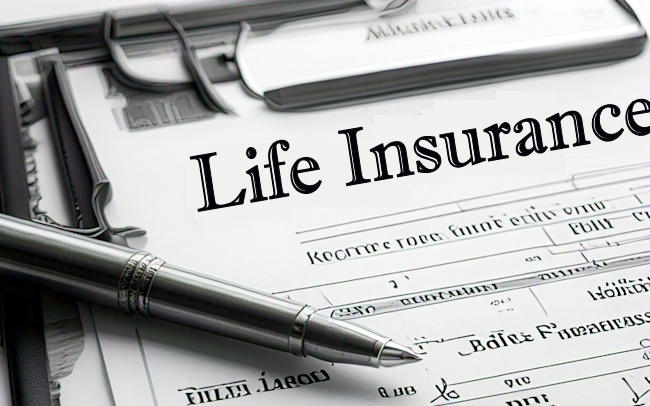Save on Car Insurance-
It’s rare to find someone glad to pay insurance costs… until they have a claim. Then suddenly car insurance is the greatest thing since sliced bread…provided good choices were made on coverage options and deductibles.
- Physical damage coverage: Do you do really need it?
Physical damage coverage fixes or replaces your car from a covered loss. You choose a deductible amount that you agree to pay if you have a claim and the insurance company will pay the difference up to the current book value of your car. Therefore, if the book value of your car isn’t significantly higher than your deductible, it won’t warrant paying out the premium so exclude it to save money.
- Collision – The Collision portion will cover damage to your car even if you are at-fault (except in Michigan). It could be because you ran off the road and hit something, hit or ran over an object in the road, hit a curb, or hit (or were hit by) another car.
- Comprehensive – Comp will pay to fix or replace your car for “other than collision” losses that are covered. Some of these occurrences would be fire or vandal damage, flooding or weather conditions, or animal impact damage (cf. here for further explanations).
- Understand the role of liability protection.

Liability is required in all states with few exceptions when you own a car. Bodily Injury and Property Damage are the two options you have to have to be on the road. They pay the other person if you cause an accident.
Avoid the mistake of thinking that you don’t want to be responsible to pay a bunch of money to someone else and pick the cheapest and lowest coverage possible. You took on the responsibility for ALL injury and damage when you took possession of the car. The insurance simply helps you pay a portion based on your policy.
When you look at it that way, you will be more apt to choose higher limits of liability so you won’t have to worry about more coming out of your pocket.
- One shocking tip: Raising your Bodily Injury limits will provide you additional advantages in premium pricing over time for proving financial responsibility.
- Do you really need additional medical coverage?
First party medical benefits might be called Medical Payments or Personal Injury Protection depending on your state. Sometimes there is a minimum requirement, and sometimes it’s optional.
If it’s optional, ask yourself these questions:
- Do I have good health care coverage?
If yes, what is your deductible? If the deductible is high, set your medical benefits as the deductible amount so you at least have that covered if you are injured in your car.
If no, you should consider including some.
- Do I have passengers in my car on a regular basis?
If yes, you may want to make provision for first party medical to assist if you or someone is injured even if you don’t care to have it for yourself.
- Have you told the truth and nothing but the truth?
It’s not just outright fraudulent claims that causes people to pay higher premiums; it’s also the “little white lies” insured’s tell their company, including lies by omission.
You might think that “forgetting” to update your insurance company will save you money, but you could be sadly mistaken if they deny your claim based on discovering the “forgotten” item.
Just tell the truth. If you end up paying a few dollars more, at least you have the peace of mind knowing that you’re protected.
You may even discover you get better rates by telling the truth. Your new spouse might have better credit providing you a better rate and provide you a married discount that drops your rate further. Don’t assume changes will always require increases.
- Check your personal information for accuracy and do comparison quotes annually.
At least once a year you should check your motor vehicle history report, CLUE report, and your insurance company’s claims history on you. Any mistakes could cost you money. Group it in with your annual credit history checks and insurance renewal notice and you can do all those boring tasks all at once to save both time and money. Use this time to do comparison quotes online with your same (or better) coverage options.
Because car insurance is one of those things where there is no tangible benefit unless a crisis occurs, people do not relish forking out that payment every year, six months, or month. Learn a few tips, tricks, and coverage definitions and you can find great savings and/or great value in your policy.
See Also:
- Car Insurance Terminology for Newbies
- Teen Car Insurance Discounts to Save You Money
- Car Insurance Savings That Most Drivers Overlook
- Term vs. Whole Life Insurance – What Should You Choose?
- Life Insurance Benefits
- The Top 5 Health Insurance Companies
- Making a Decision: Individual or Group Life Insurance Policies?
- Car Insurance Lesson for Young Adults
- Save on Automobile Insurance
- Make Car Insurance Quotes a Regular Habit
Car Insurance Resources from Amazon:
- Ten Questions – The Insider’s Guide to Saving Money on Auto Insurance: Hidden Discounts Revealed
- Be Insurance Savvy: Home, Auto, Dwelling, Renter’s, Flood and other Personal Insurance Explained (Volume 1)
- How To Save Money on Car Insurance: The “must have” insider’s guide to saving money on car insurance in the UK
- Vehicle Insurance: Beware: Double Coverage Save $22,000 with the right policy
- Cheap Insurance for Your Home, Automobile, Health, & Life: How to Save Thousands While Getting Good Coverage
About The Author:
Steven Weinberg is a licensed insurance agent in 46 states and writes a weekly column at http://www.carinsurancecalculator.info.
Photo Credits: by born1945



